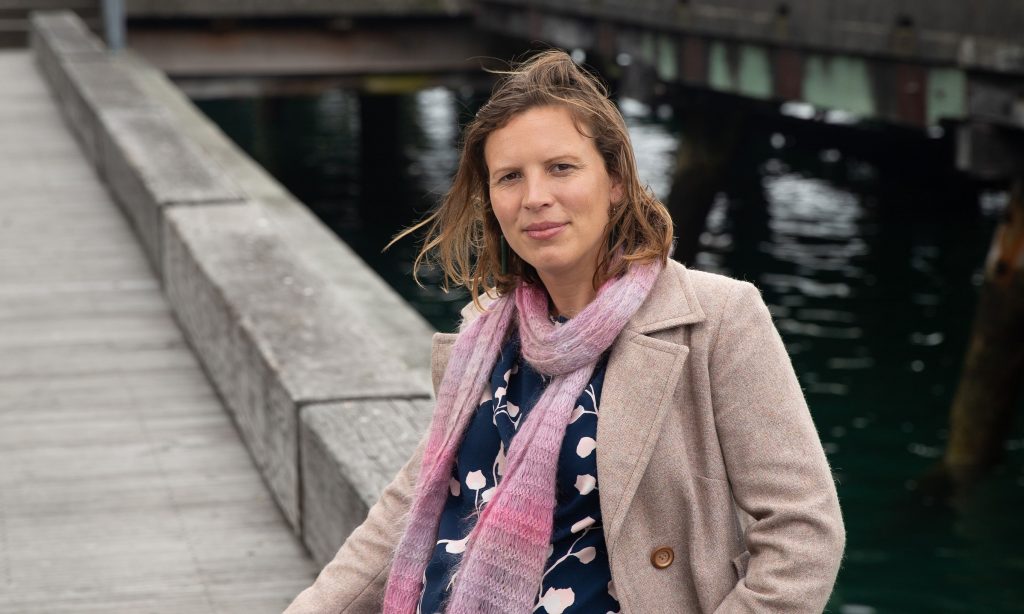Lesley Smith

As the principal data scientist for Water New Zealand, and chair of our Representative User Group (RUG), Lesley’s knowledge about water runs into the megalitres. Lesley represents Water New Zealand on the RUG, which is the principal voice for the sector, encompassing the three waters. We think there’s not much Lesley doesn’t know about water, but she disagrees.
“There’s so much I don’t know! So many questions about our water environment remain unanswered. Even a question as simple as ‘where do we use our water’ is intractably hard to answer. It’s great that the Deep South Challenge has an interest in helping connect our sector with the science that can plug some of the gaps. We have plenty of thorny problems scientists can help us find answers to. I’m talking in particular about our drinking water, wastewater and stormwater networks.”
So many questions about our water environment remain unanswered. Even a question as simple as ‘where do we use our water’ is intractably hard to answer.
Lesley’s been a champion of Challenge research to the water sector, and vice versa. Her work seems largely to be about translation – translating climate research into information that people on the ground, from planners to engineers, can use. But there are hurdles to successful translation, as well as opportunities. “Being present in the regions,” Lesley continues, “and having time to share information face-to face with our members, is really important. But it’s a big challenge. I recently sat in on an online Challenge hui and see heaps of potential for this format to share knowledge in the future.”
The Challenge has several projects in the water space, from the ‘whole of life’ water cycle, to more practical projects looking at water storage, drinking water, or issues for our storm and wastewater infrastructure. Lesley takes her pick of the projects.
“I’m interested to see how the ‘drinking water, drought and climate change’ project pans out. In New Zealand, we’re not always the best at planning for future drinking water demands. That’s understandable – it generally feels fairly wet here! I’m hopeful this project will not only improve our understanding of how climate change might alter things, but will also encourage a more forward-looking approach to water supply and demand management.”
Is the Challenge on track when it comes to matching climate science with the needs of key stakeholders like Water New Zealand? “The Challenge has been great at matching science with stakeholders, in particular through the dialogue process. One issue I see with this is that most stakeholders seem to represent different sectors at a national level. As a result, most projects don’t appear to respond to the local challenges being faced at a community level. I think there is big potential for more projects that work with communities as case studies.”
It seems likely that human needs will get priority if, or when, we start moving into a more water-constrained world. What will this mean for our aquatic ecosystems?… Work to understand how we can assist our flora and fauna adapt is falling through the gaps – at our peril. We depend on the ecosystems that surround us.
For obvious reasons, the National Science Challenges are restricted in scope. The Deep South Challenge does not look, for example, into the effects of climate change on biological systems. Nevertheless, suggests Lesley, this work mustn’t be forgotten. “Linked with the work above,” she says, “we need to understand the adaptation challenges that will be faced by our aquatic ecosystems. It seems likely that human needs will get priority if, or when, we start moving into a more water-constrained world. What will this mean for our aquatic ecosystems?… Work to understand how we can assist our flora and fauna adapt is falling through the gaps – at our peril. We depend on the ecosystems that surround us.”
Reflecting on the future world she’s working to bring into being, she says “By the time my kids get to work, I hope we have stopped hiding behind the notion that ‘nobody owns our water’. I hope we’ve come up with a fair way of allocating and valuing water, that addresses pointed questions around iwi rights and interests.”